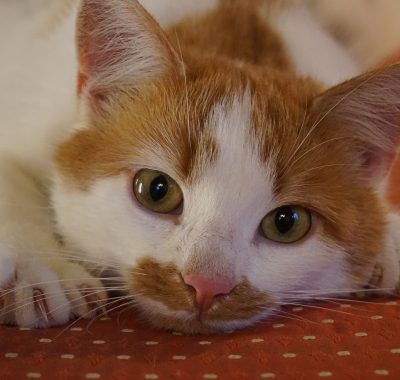March 15, 2018, was a happy and historic day for cats in Nova Scotia. That’s when we officially became the first province or state in North America to ban elective, medically unnecessary cat declawing. The Nova Scotia SPCA, along with other animal welfare groups, had advocated ending the practice and were thrilled to see a ban imposed.
The Canadian Veterinary Medical Association states that declawing causes unnecessary and avoidable pain. The term ‘declawing’ is actually a misnomer since it implies that the procedure simply removes a cat’s claws. In fact, declawing involves amputating the bones in a cat’s paws. The procedure is the equivalent of amputating a person’s fingers down to the last knuckle joint! Recent studies show that declawing can cause long-term adverse health impacts including arthritis, pain in paws and limbs, and back problems.

So, will declawing ever be performed? In very rare cases of infection or trauma, the removal of a claw or claws may be medically necessary and be in the cat’s best interests.
The Canadian Veterinary Medical Association points out that scratching is a natural and necessary behavior that cats use to mark territory, help with balance, climb and defend themselves. In the past, some pet owners rationalized getting their cats declawed to prevent scratches to furniture, people or other pets. However, there are some more humane alternatives. Try these:
- Trimming your cat’s nails regularly
- Nail caps
- Providing them with several scratching posts
- Lots of positive reinforcement
Here at the Nova Scotia SPCA, we have seen no increase in surrenders for destructive scratching behaviours since the NSVMA implemented the ban. Furthermore, according to the National Council on Pet Population Study and Policy, the destruction of household objects does not even make the top 10 list of reasons why cats are relinquished to shelters.

Declawing has already been banned in Europe, the U.K., Australia and several U.S. cities. There have also been calls in other Canadian provinces to ban the practice. Now that Nova Scotia is leading the way, it should be easier for other jurisdictions to ban declawing.
The province was able to assume this leadership role thanks first to the courage of the Nova Scotia Veterinary Medical Association (NSVMA) who amended its code of ethics to prevent vets from declawing cats. Second, we need to applaud the Nova Scotia government, who passed landmark legislation that makes cat declawing illegal across the province for both animal guardians and veterinarians. Those who declaw a cat for cosmetic reasons now face up to six months in jail and a $25,000 fine for a first offense.
Let’s celebrate this important step forward in Nova Scotia animal welfare. It truly is “the cat’s meow”!
